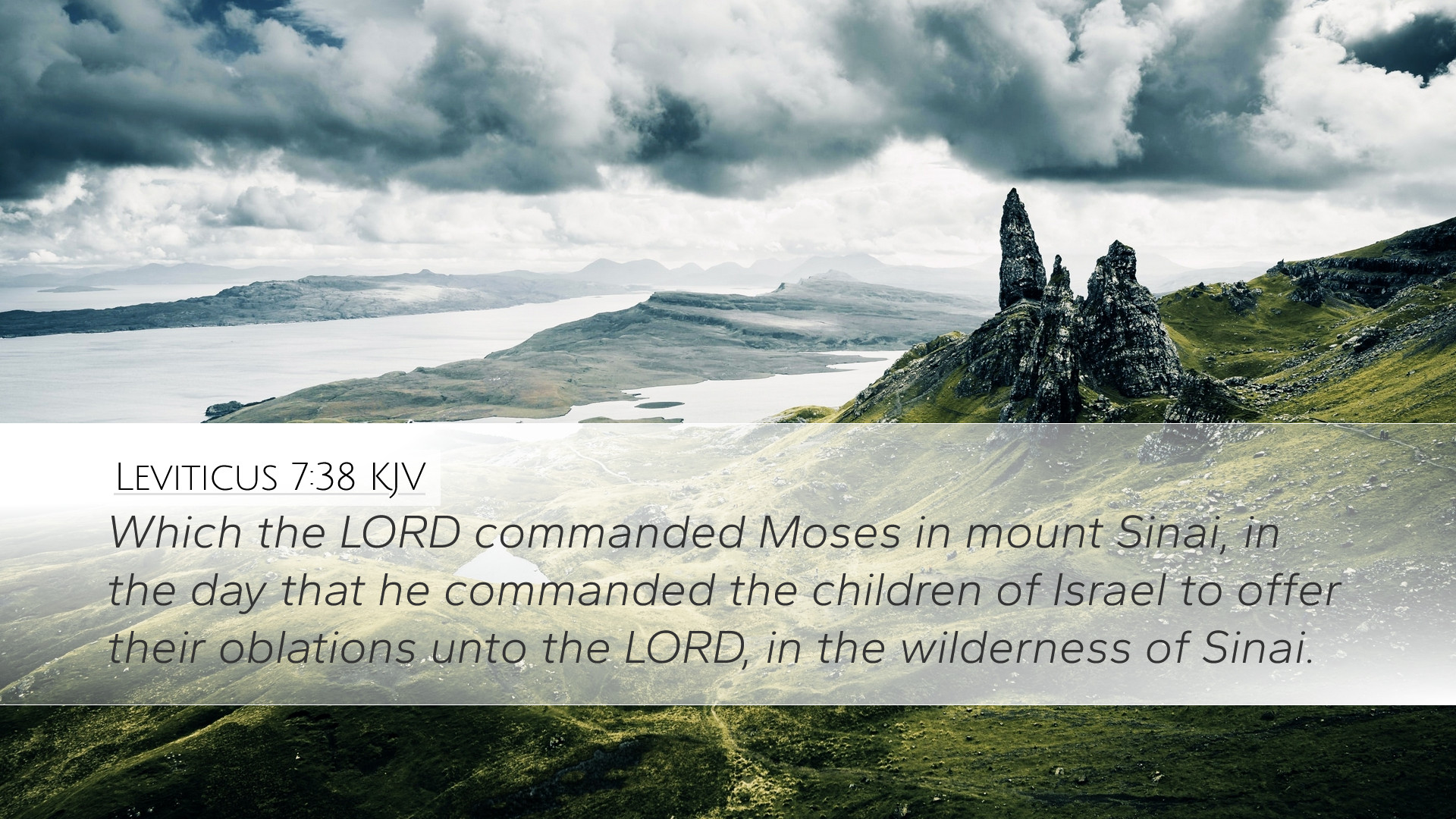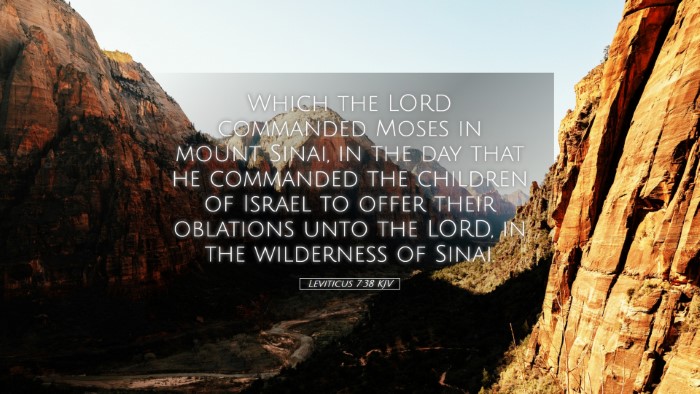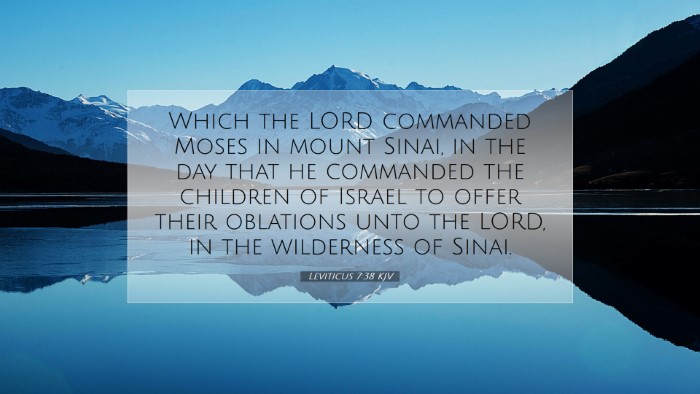Commentary on Leviticus 7:38
Leviticus 7:38 states: "Which the Lord commanded Moses on Mount Sinai, in the day that he commanded the children of Israel to offer their oblations unto the Lord, in the wilderness of Sinai." This verse serves as a crucial closing point in the section concerning the law of sacrifices, outlining the divine instruction given to Moses concerning the offerings of the people. Below is an exploration of the foundational concepts, theological implications, and scholarly insights drawn from public domain commentaries.
Contextual Significance
The commandment referenced in Leviticus 7:38 is part of the larger Mosaic Law, where the Lord delineates the rites associated with the offerings. This specific instruction highlights not just the nature of the sacrifices but their purpose and proper execution.
Mosaic Authority
Matthew Henry emphasizes the authoritative role of Moses in relaying God’s commandments to the Israelites. He points out that God's decisions were made clear to His people through Moses, underscoring the importance of obedience and adherence to divine mandates. The repeated mentions of Sinai heighten the verse's significance, establishing it as a locus for divine revelation.
The Wilderness Setting
Albert Barnes notes that the setting of Sinai and the wilderness serves a dual purpose. It is a place of revelation and divine communication, but it also represents God’s guidance and provision during a time of testing and interim existence for the Israelites. This context emphasizes their dependence on God's instructions as they prepared to enter the Promised Land.
Implications of Offerings
This verse encapsulates the continuous theme of offerings in Levitical law, pointing to several deeper theological implications:
- Divine Command: The phrase "which the Lord commanded" establishes the source of the law, revealing that these practices are divinely instituted rather than merely ritualistic.
- Collective Worship: Offerings are depicted not only as personal acts but as corporate worship, uniting the community in their devotion to God.
- Obedience vs. Ritualism: Emphasizing compliance with divine commands rather than mere performance of rituals is important; this teaches the necessity of heart and intent behind the actions.
Theological Interpretations
Adam Clarke brings to light the scholarly interpretations surrounding the significance of offerings, noting that these acts of worship prefigured the ultimate sacrifice of Christ. Each offering holds prophetic significance, reflecting the sanctity required for atonement and the nature of true worship required by God.
Typology of Sacrifices
Clarke elucidates how the ritualistic offerings in Leviticus serve as types pointing to Christ, the ultimate and final sacrifice. The symbolism inherent in each offering reflects God's plan for redemption and signifies an essential aspect of reconciliation between God and humanity.
Pastoral Applications
For pastors and Christian educators, this commentary invites reflection on key themes relevant to ministry today:
- Instruction and Obedience: Ensuring congregations understand the importance of being rooted in scripture and God’s commands is crucial for spiritual growth.
- Community Worship: Facilitating environments where collective worship and communal offerings are practiced encourages a deeper bond within the church body.
- Heartfelt Worship vs. Ritual: It serves as a reminder that the heart behind offerings—both in the Old Testament and in contemporary practices—must be sincere and reflective of a relationship with God.
Conclusion
In summation, Leviticus 7:38 serves as a vital reminder of God's specific instructions concerning worship and the significance of the offerings as both an act of obedience and a symbol of the profound relationship between God and His people. Through the insights provided in the commentaries of Henry, Barnes, and Clarke, a rich tapestry of understanding emerges that speaks to various audiences, including pastors, students, theologians, and scholars.


